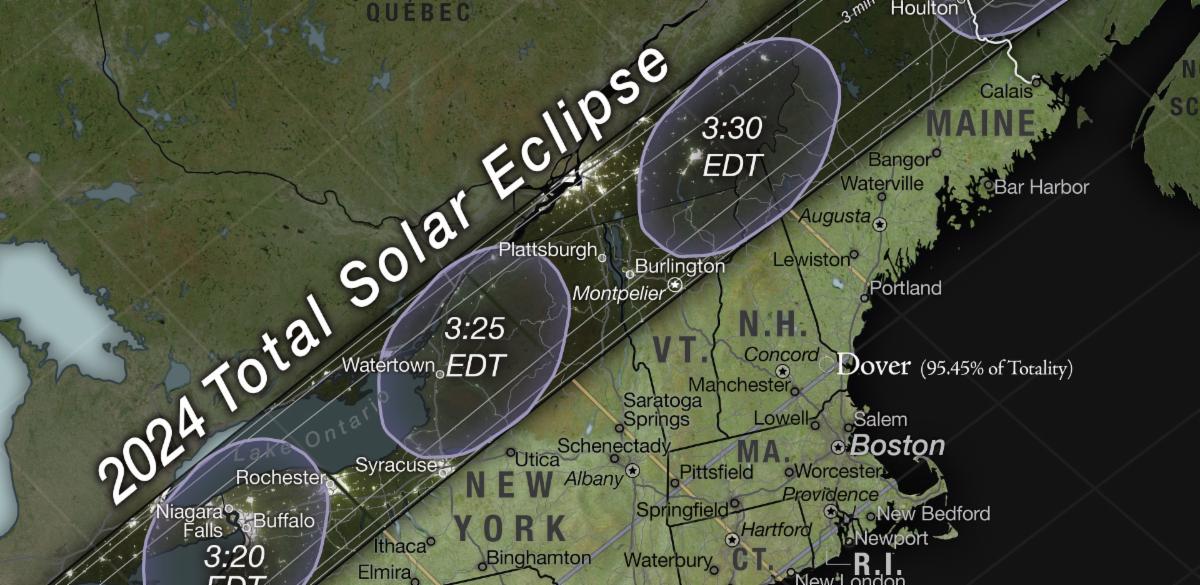How to safely view the solar eclipse in Salem
Salem residents will have a front-row seat to a stunning celestial event today, Monday, April 8 – a near-total solar eclipse. As the moon passes between the Earth and the sun, it will obscure about 95% of the sun’s light over Salem.
While this remarkable astronomical phenomenon promises to be a captivating sight, the Town of Salem urges the public to take necessary precautions to protect their eyes and ensure a safe viewing experience.
Solar eclipses are rare and extraordinary occurrences, but looking directly at the sun, even during an eclipse, can cause permanent eye damage. We want everyone to enjoy this celestial spectacle while prioritizing their safety.
To ensure a safe and enjoyable eclipse viewing, we offer the following guidance:
Eye Safety:
- To view the eclipse directly, you can use specialized eclipse glasses or handheld solar viewers with an ISO 12312-2 certification.
- Regular sunglasses or homemade filters are not adequately protected and should not be used.
- Supervise children closely to ensure they use proper eye protection.
- Never look directly at the sun through cameras, telescopes, binoculars or any other optical device without specialized solar filters.
Viewing Location:
- Plan to view the eclipse from a safe, designated area or parking lot.
- Do not pull over on the side of the road, turnpike, or highway to observe the eclipse, as this poses a significant safety risk.
- Consider watching the eclipse live-streamed online or on television if you cannot find a suitable viewing location.
Additional Precautions:
- Inspect solar filters for any scratches or damage before use and discard if compromised.
- Use pinhole projection as a safe, indirect method to view the eclipse.
- Be mindful of your surroundings and stay away from hazardous areas during the eclipse.
The solar eclipse will be visible in Dover from approximately 2 p.m. to 4:30 p.m., with the peak of the near-total eclipse occurring around 3:30 p.m.
For more information about the eclipse, visit https://science.nasa.gov/eclipses/future-eclipses/eclipse-2024/.
For additional safety information, visit https://www.nsc.org/community-safety/safety-topics/seasonal-safety/how-to-watch-a-solar-eclipse.
